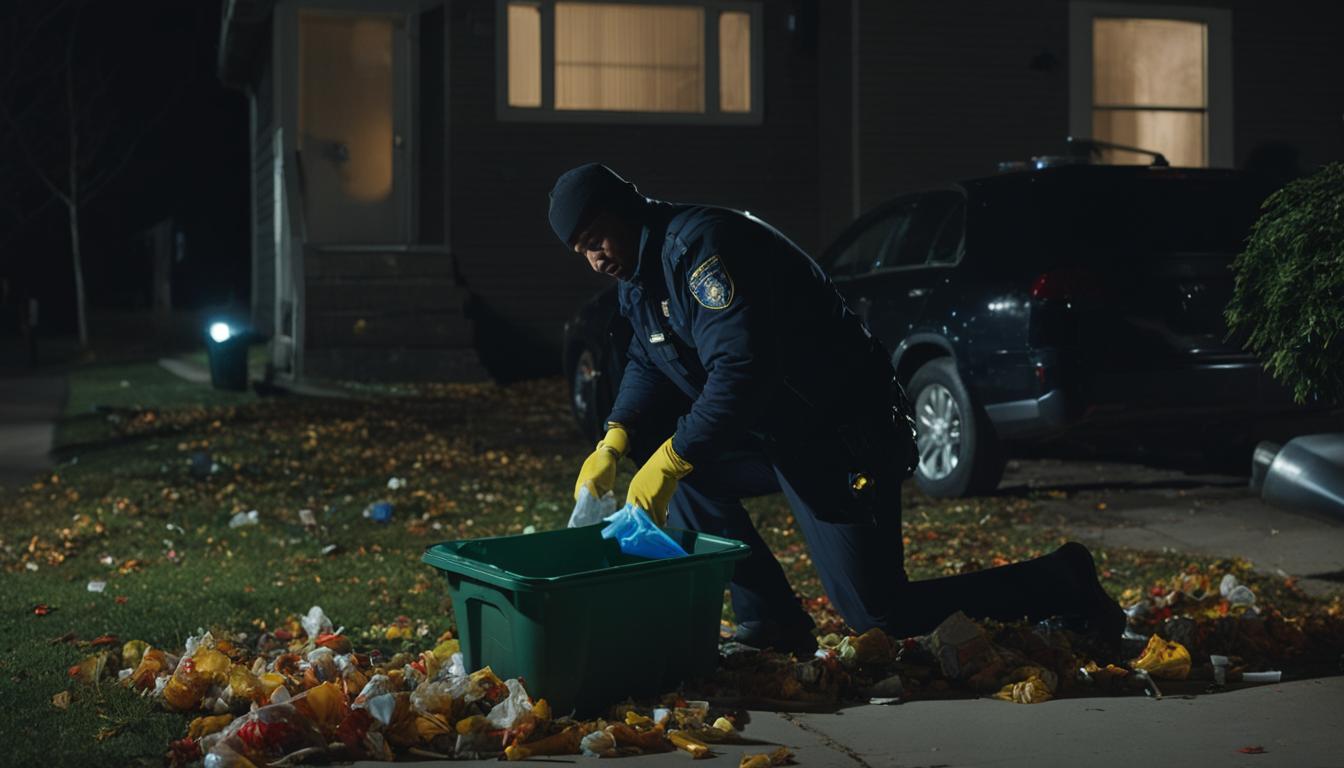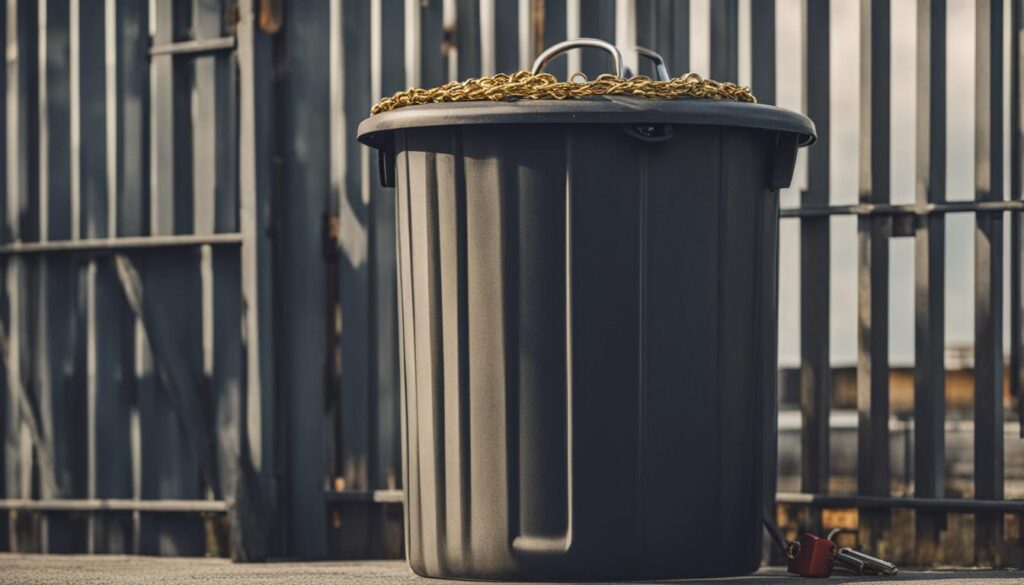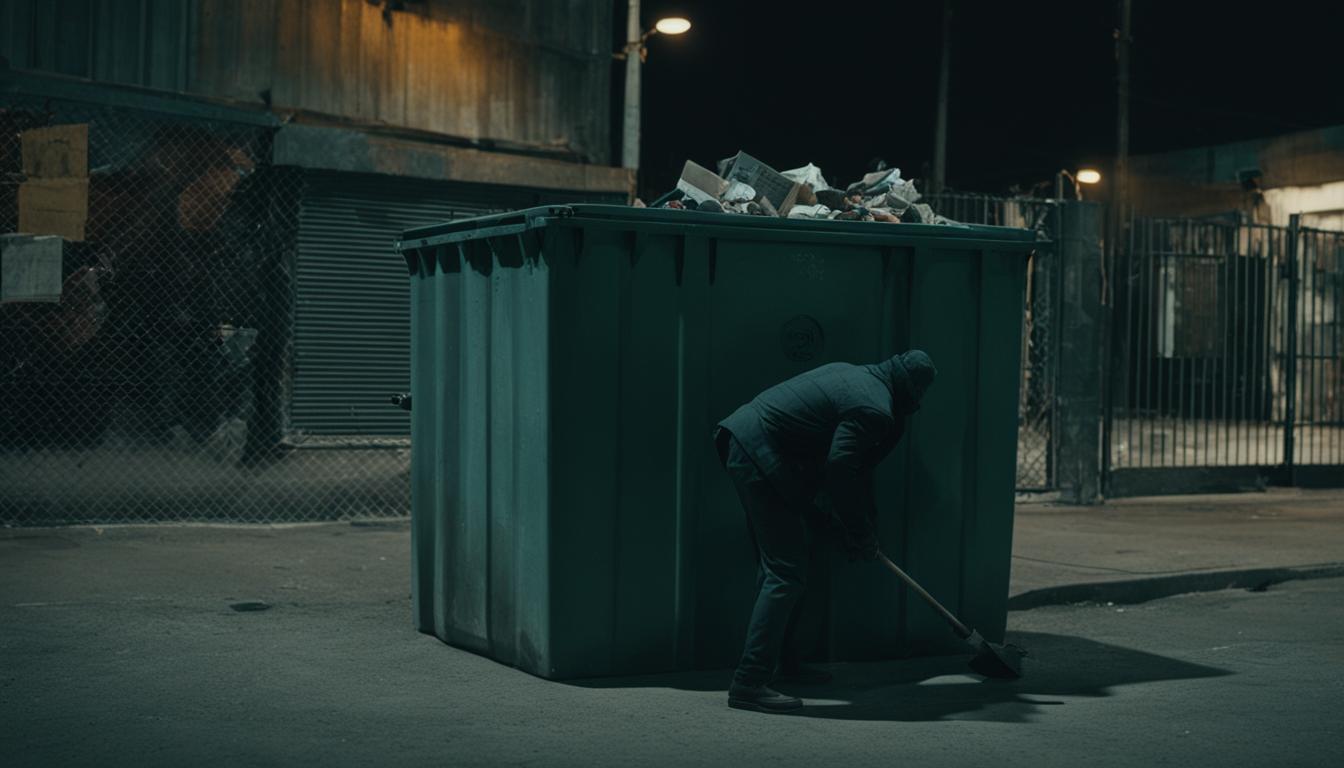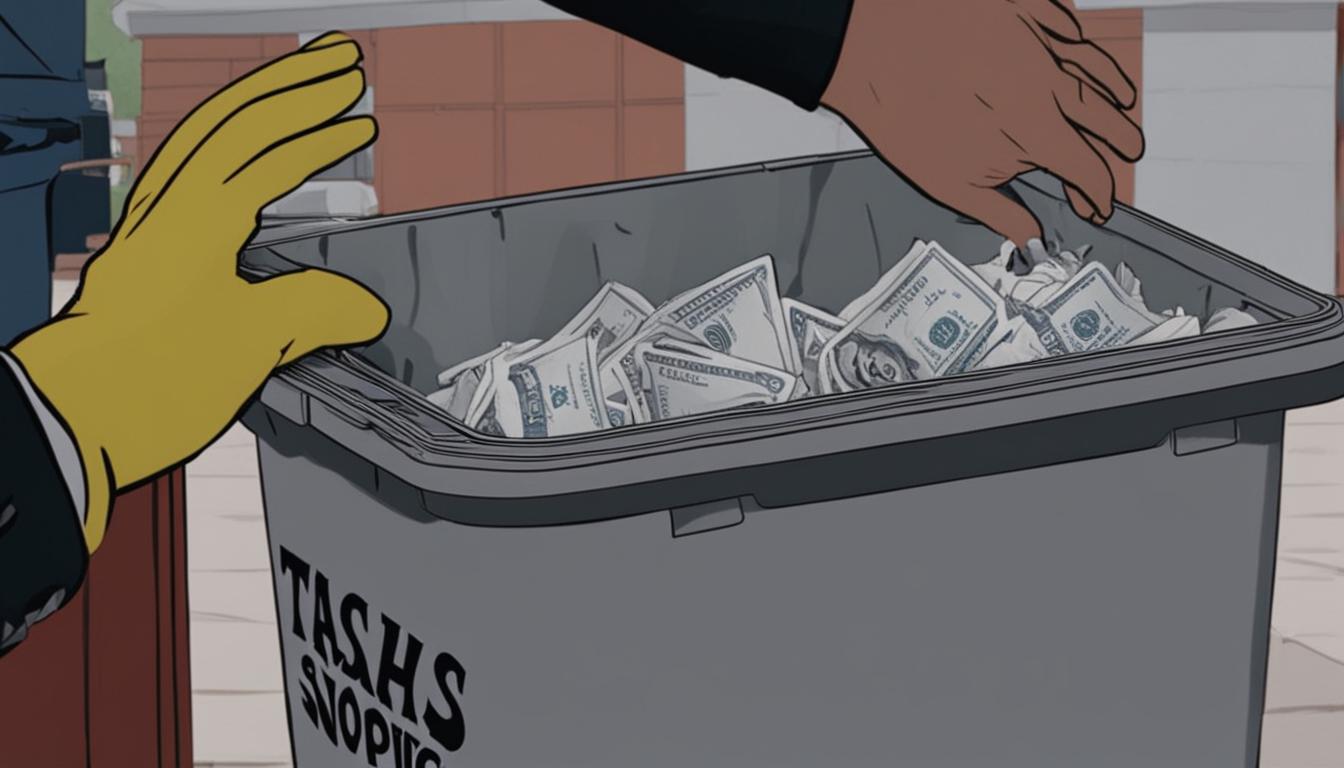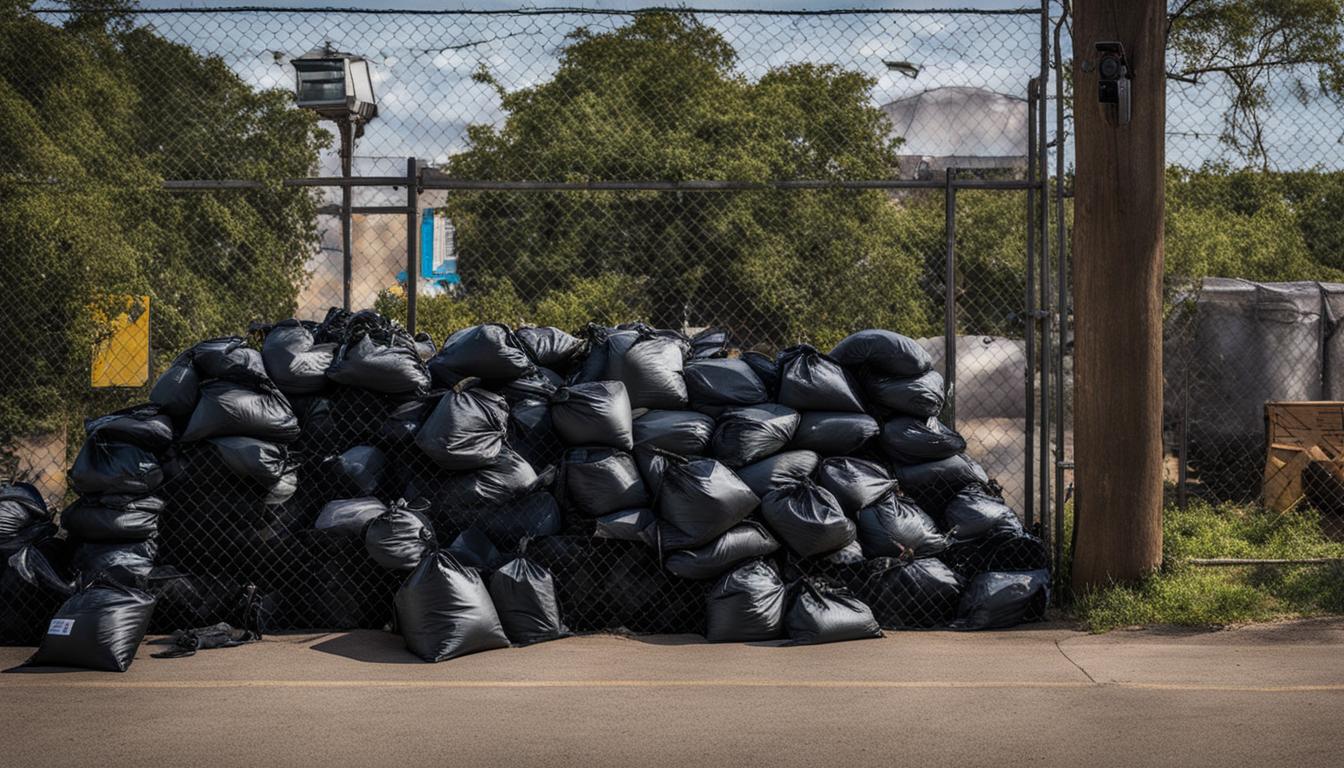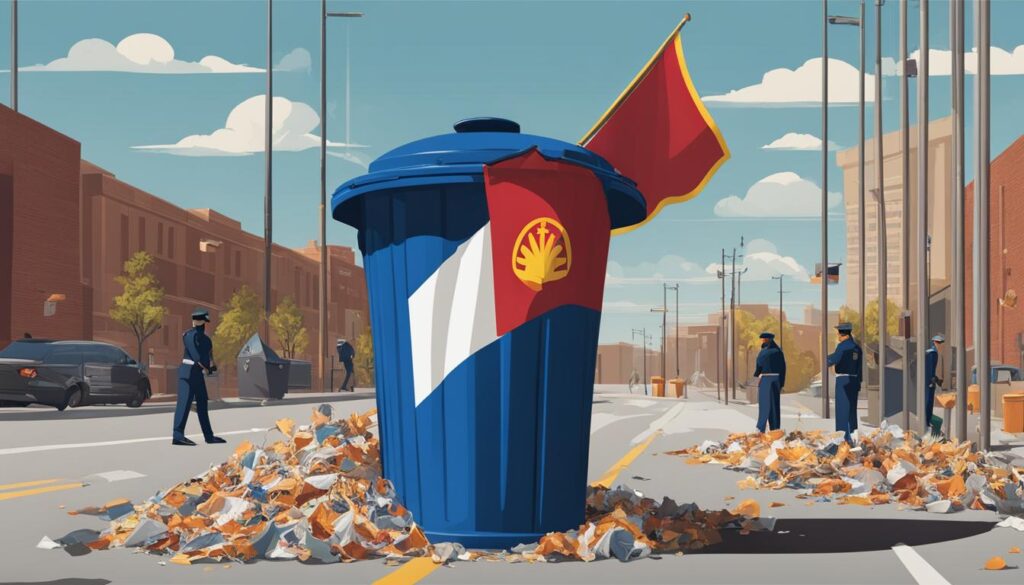Disclosure: This Post Contains Affiliate Links; We earn a commission on purchases.
Dumpster diving is the act of rummaging through another person’s garbage or trash in search of discarded materials. While dumpster diving is legal in Maryland, there are certain regulations and restrictions that individuals must adhere to. It is important to understand the privacy laws in Maryland and the consequences of unauthorized access to trash bins. Dumpster diving can potentially lead to identity theft if personal information is obtained. It is crucial to know the rights and boundaries surrounding trash searching in Maryland.
Key Takeaways:
- Dumpster diving is legal in Maryland, but there are regulations and restrictions to consider.
- Unauthorized access to trash bins can potentially lead to identity theft.
- Understanding privacy laws in Maryland is crucial to avoid legal consequences.
- Protecting personal information by properly disposing of sensitive materials is essential.
- Report any suspicious behavior to local authorities to prevent dumpster diving crimes.
What are the Legalities of Dumpster Diving in Maryland?
Dumpster diving, the act of searching through another person’s trash or garbage, is a practice that raises questions about its legality. In the state of Maryland, dumpster diving is generally considered legal, but it is important to understand the specific laws and regulations surrounding this activity.
In Maryland, dumpster diving is allowed in public areas such as curbs or designated spots for trash pickup. Once the trash is placed in these public areas, it is considered abandoned property, and the person who discarded it has relinquished ownership rights. This means that anyone can legally search through the trash in these public areas.
However, it is essential to note that if a dumpster or trash bin is located on private property or in an enclosed area, diving into it could be considered trespassing or even theft. It is crucial to respect the boundaries of private property and not trespass to access someone’s trash.
In addition to private property concerns, certain cities or counties in Maryland may have specific regulations that designate certain garbage processing areas as off-limits to the public. These regulations exist to maintain public safety and privacy. It is important to be aware of these laws and restrictions to avoid any legal consequences.
To summarize, dumpster diving is generally legal in Maryland when conducted in public areas. However, it is essential to respect private property boundaries and be aware of any specific regulations in your area. By doing so, you can engage in trash searching legally and responsibly.
How Can Trash Searching Lead to Identity Theft?
Dumpster diving poses a risk of identity theft as personal information can be obtained from discarded materials. Some of the sensitive information that can be obtained includes driver’s license information, social security numbers, dates of birth, handwritten signatures, medical information, and financial details such as bank statements and credit card numbers. While dumpster diving itself may not be illegal, the use of someone’s confidential information for criminal purposes is illegal and can result in criminal charges. Identity theft can lead to fines, imprisonment, and the requirement to pay civil damages to the victim.
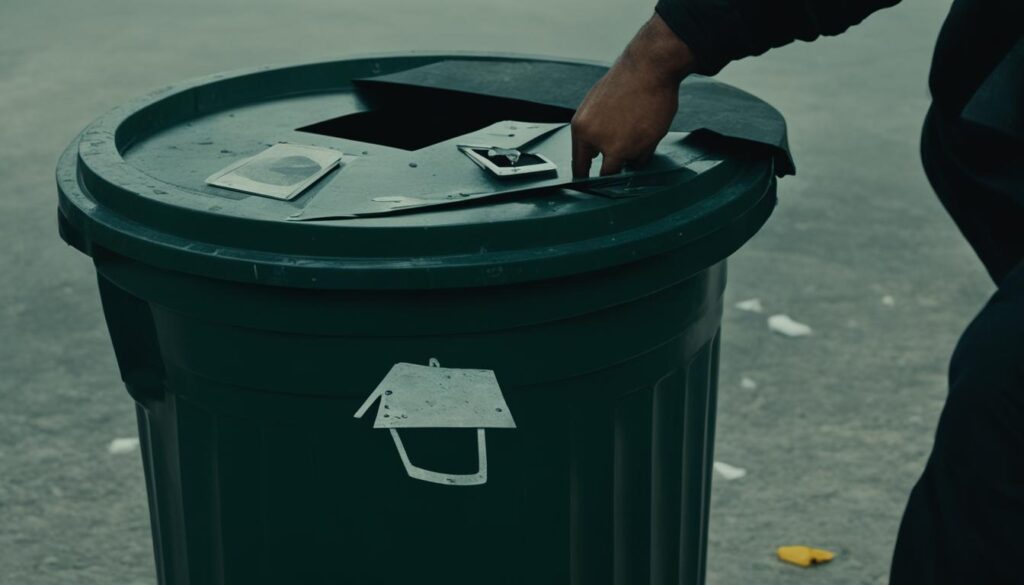
| Types of Personal Information | Potential Consequences |
|---|---|
| Driver’s license information | Identity fraud, impersonation |
| Social security numbers | Financial fraud, credit card misuse |
| Dates of birth | Identity theft, fraudulent account creation |
| Handwritten signatures | Forged documents, false authorizations |
| Medical information | Healthcare fraud, insurance scams |
| Financial details (bank statements, credit card numbers) | Unauthorized transactions, fraudulent purchases |
In Maryland, unauthorized access to trash bins can provide criminals with the tools they need to steal identities and wreak havoc on people’s lives. It is essential to be aware of the potential risks and take necessary measures to protect your personal information.
Tips for Protecting Yourself Against Dumpster Diving Crimes
Protecting your privacy and personal information is essential when it comes to guarding against dumpster diving crimes. By taking certain precautions, you can minimize the risk of unauthorized access to your trash and the potential legal consequences that may follow.
“One man’s trash is another man’s treasure.”
Here are some valuable tips to help safeguard your privacy:
- Securely Dispose of Private Information: Properly dispose of any private and confidential information by shredding or destroying it. This includes documents containing personal details, financial statements, and any other sensitive information that could be used against you.
- Mind Your Trash Schedule: Avoid putting out trash earlier than necessary and retrieve your bins as soon as possible. By doing so, you can minimize the chances of someone accessing your trash and uncovering sensitive information.
- Report Suspicious Behavior: If you notice any suspicious individuals or activity in your neighborhood, promptly report it to the local authorities. Your vigilance could help prevent dumpster diving crimes and protect your community.
By staying informed about privacy laws in Maryland and following these preventative measures, you can reduce the risk of becoming a victim of dumpster diving crimes. Remember, taking the necessary steps to protect your privacy is an important part of maintaining personal security.
| Legal Consequences | Privacy Laws in Maryland |
|---|---|
| Unauthorized access to trash bins can lead to legal repercussions, including: | Privacy laws in Maryland outline the boundaries and regulations surrounding dumpster diving. Familiarize yourself with these laws to understand your rights and obligations. |
| Avoiding trespassing charges | Protecting personal information |
| Preventing identity theft | Reporting suspicious behavior |
| Avoiding fines and imprisonment | Maintaining community security |
Conclusion
Dumpster diving is legal in Maryland as long as it is done in public areas and does not violate trespassing laws or regulations. However, it is important for individuals to exercise caution and respect private property boundaries. While dumpster diving itself may be legal, it poses a risk of identity theft and other criminal activities. Therefore, it is crucial to take appropriate measures to protect your personal information and report any suspicious behavior.
By understanding the privacy laws in Maryland and the legalities surrounding dumpster diving, you can engage in this activity while staying within the boundaries of the law. It is recommended to dispose of any confidential information properly by shredding or destroying it, and to avoid putting out trash earlier than necessary to minimize the chances of unauthorized access. Additionally, being vigilant and reporting any suspicious behavior to the local authorities can help ensure the safety of your personal information and the community as a whole.
Remember, dumpster diving can serve as a valuable resource for finding discarded items, but it is essential to navigate this activity responsibly and legally. Stay informed about privacy laws in Maryland, respect private property rights, and take steps to protect your privacy. By doing so, you can enjoy the benefits of dumpster diving while minimizing the potential risks.
Source Links
- https://www.legalmatch.com/law-library/article/is-dumpster-diving-illegal.html
- https://bizarrehobby.com/maryland-dumpster-diving/
- https://casetext.com/statute/code-of-maryland/article-criminal-law/title-10-crimes-against-public-health-conduct-and-sensibilities/subtitle-1-crimes-against-public-health-and-safety/part-i-general-provisions/section-10-110-litter-control-law

Subscribe to Our Newsletter

